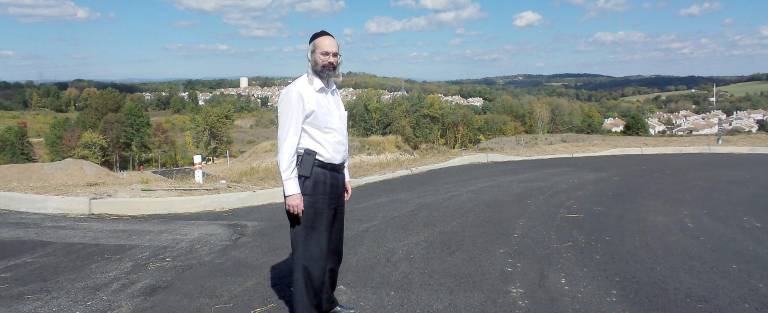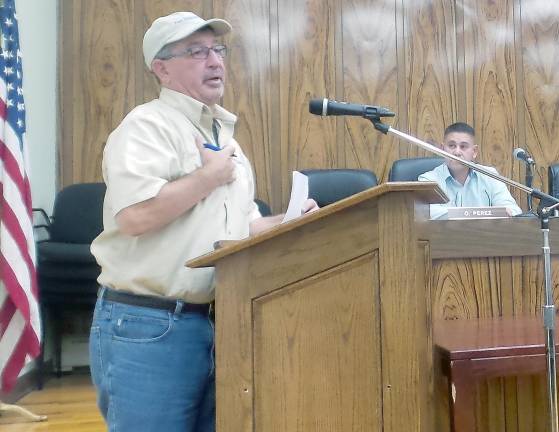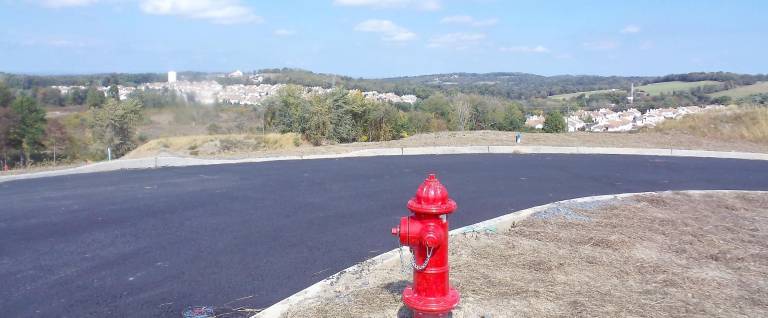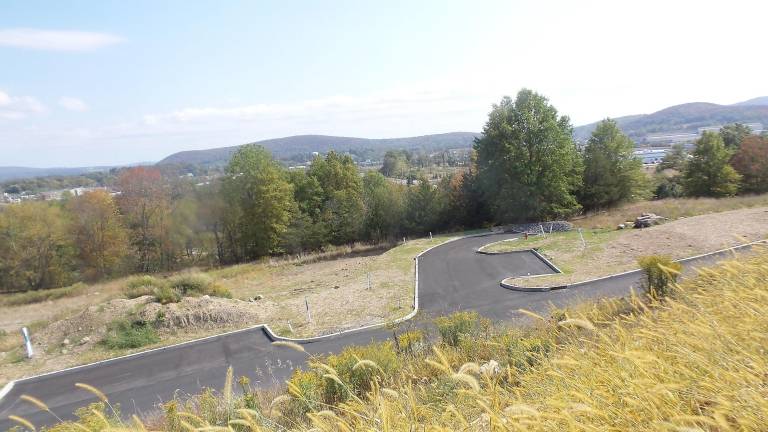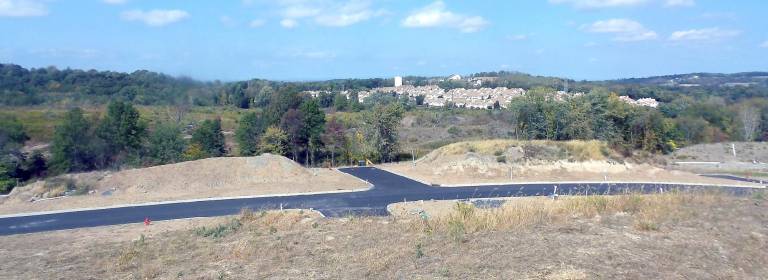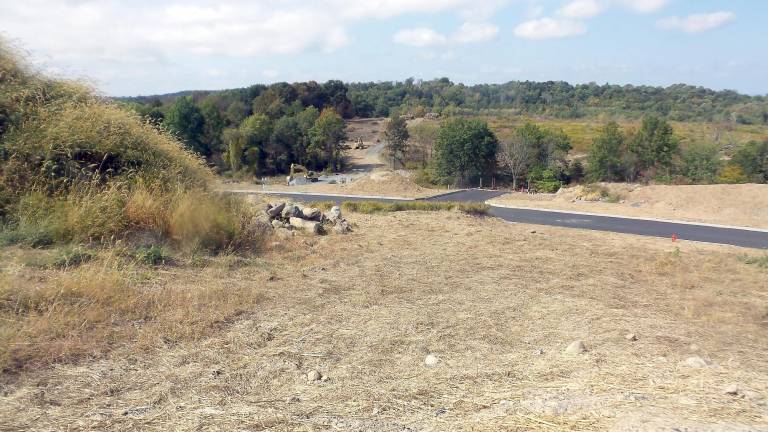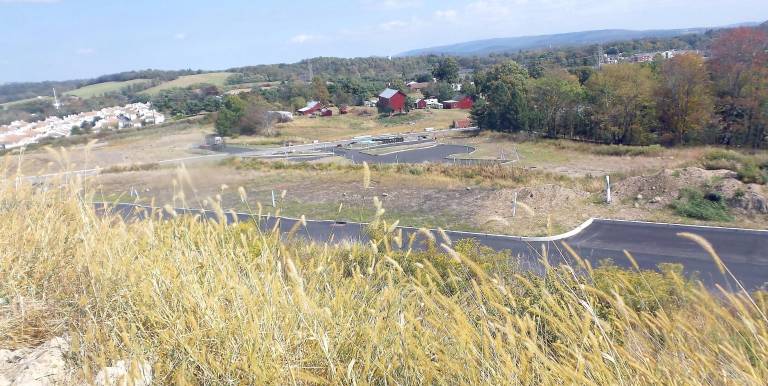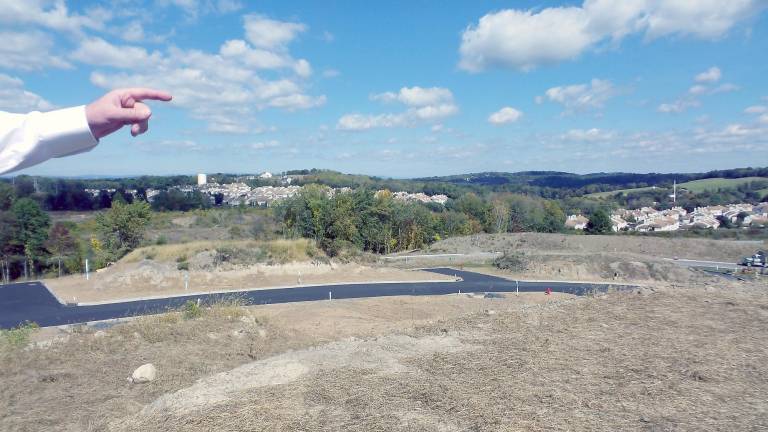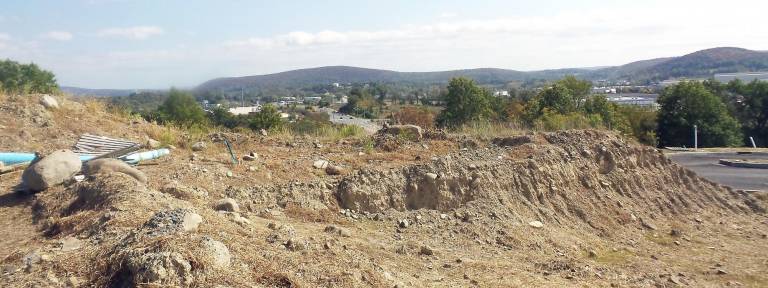Builder shows progress at the Greens while lamenting it's not further along
Chester. Greens builder Livy Schwartz and town building inspector Jim Farr have very different ideas about the status of water permits at the Greens of Chester housing development. A state water engineer says the Greens must first update 17-year-old plans and water tests in a new application.
From some vantage points at the Greens of Chester, you can see the rooftops of Whispering Hills and the industrial park. The far-off horizon is broken only by water towers and the encircling mountains.
Builder Livy Schwartz showed the progress being made at the Greens, which began construction in 2017, while also lamenting it wasn't further along.
He pointed to some of the curbed roads that will connect the Greens' five neighborhoods. Here and there were piles of cut trees in areas still being cleared, and of water lines waiting to be installed.
"Without the town’s illegal actions, we would be completing the first 82 houses of the first neighborhood," he said in an email.
"We have an active water permit," he said. "Our hydrologist is working with the engineers of the (Orange County) Department of Health to determine the parameters and timing of the new water test."
Jim Farr, the town's building inspector, painted a much different picture in his Sept. 25 water report to the town board. Farr said Steve Gagnon, who monitors public water supplies for the health department, told him the Greens needed a new state application.
In July 2018, Michael Montysko, a water engineer with the New York State Department of Health, said the current developers did need to update their application. In a letter to Christopher Ericson, deputy commissioner at the Orange County Department of Health, Montysko said the project approval given in 2002 was based on "the proposed water system meeting applicable regulations, design requirements and water quality standards at that time."
"Given the changes in regulations and design standards along with the amount of growth that has taken place in Orange County," Montysko said, four conditions had to be met to comply with the earlier approval: updated plans for public water supply improvement; an updated engineering report, including plans and specifications; results from a new 72-hour yield test, including the monitoring of offsite wells to determine the quantity of water available in the aquifer; and recent water quality test results.
Town refuses to grant house permits
The Greens recently brought a multimillion-dollar lawsuit against the town for breach of contract. The suit says the town is violating an existing agreement and blocking plans approved by its planning board.
Schwartz said the town is preventing the developers from bonding, even though the planning board explicitly allowed for the bonding in its final approval. Subdivision bonds guarantee that developers meet their obligations to the municipality.
He also said the town is insisting that all infrastructure be in place before the Greens is eligible for even one house permit.
"This is contrary to the approved plans, contrary to New York State law, and contrary to established practice everywhere (including Chester) which allows for later phase infrastructure to be bonded," Schwartz said in his emailed response.
Schwartz said that every day of delay runs up the Greens' costs in overhead, taxes, insurance, professional fees, and interest. But, he said, none of the town's delaying tactics will succeed in shutting down the site.
"The town’s refusal to allow bonding is tremendously costly because it requires tens of millions of dollars of investment before any sales can be realized," Schwartz said. "It is unheard of -- not to mention environmentally unfriendly -- and the town is insisting on it in order to try to bankrupt the Greens. This tactic will not succeed."
He said residents can consult the Better Chester Facebook page for updates on the Greens' progress, or nonprogress.
"We are so confident that the court will shut down this unlawful tactic and hold the town responsible for the damage it causes that we are proceeding with the infrastructure for the additional neighborhoods rather than shut down the site, which would also be costly," Schwartz said.
"We are so confident that the court will shut down this unlawful tactic and hold the town responsible for the damage it causes that we are proceeding with the infrastructure for the additional neighborhoods rather than shut down the site, which would also be costly." --Livy Schwartz
